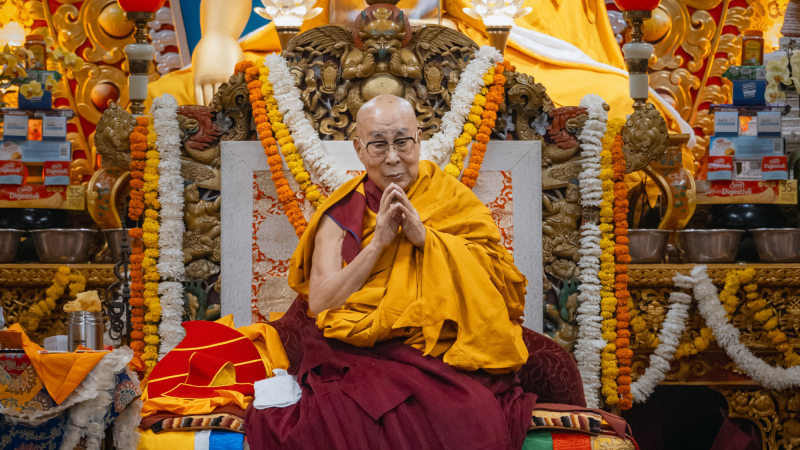
On Sunday, the world celebrated the 90th birthday of Tenzin Gyatso, the 14th Dalai Lama. This momentous occasion prompted reflection on his remarkable life and the profound impact he’s had on the world. His recent announcement regarding his reincarnation plans, declaring his intention to reincarnate after death and emphasizing the Gaden Phodrang Foundation’s role in selecting his successor, has once again highlighted the complex political and spiritual landscape surrounding this revered figure.
The Dalai Lama’s position is deeply rooted in Tibetan Buddhist belief. He is considered the reincarnation of Avalokiteshvara, the bodhisattva of compassion, a lineage stretching back to the 15th century. Historically, the Dalai Lamas have been not only spiritual leaders of the Gelugpa sect but also the political rulers of Tibet. The current Dalai Lama’s assumption of full political power in 1950 coincided with the invasion of Tibet by Mao Zedong’s People’s Liberation Army, leading to his eventual exile to India in 1959.
In exile, he established a government-in-exile in Dharamshala, preserving Tibetan culture and heritage for a diaspora of approximately 150,000 people. While initially advocating for full independence, he later adopted a “Middle-Way Approach,” seeking autonomy for Tibet within China. This approach, however, has yielded minimal concessions from the Chinese government.
Despite the political challenges, the Dalai Lama has achieved immense global recognition as a champion of peace and non-violent activism. His 1989 Nobel Peace Prize cemented his status as a moral leader, further fueling his advocacy for Tibetan autonomy. In a significant move, he relinquished his political authority in 2011, transitioning to a purely spiritual role.
The process of identifying a Dalai Lama’s reincarnation is steeped in tradition and mystique. Following the death of the previous Dalai Lama, senior lamas search for clues, often involving mystical signs and visions. The young Tenzin Gyatso was identified in this manner, recognized through his ability to identify personal items belonging to his predecessor.
However, the upcoming succession presents unprecedented challenges. The Dalai Lama’s suggestion that his successor might be born outside of Chinese territory directly contradicts China’s claim to control the selection process. China’s insistence on its own candidate and the precedent set with the Panchen Lama, whose chosen successor remains imprisoned, portends a potential conflict. The international community, particularly the United States, has expressed concern and pledged to uphold Tibetan autonomy in the selection process.
The future of the Dalai Lama’s reincarnation remains uncertain, with the potential for a global divide between those who recognize China’s authority and those who uphold the traditional Tibetan process. The 90th birthday of the Dalai Lama serves as a poignant reminder of his enduring legacy and the ongoing struggle for Tibet’s future.









